Many foods that cause bloating are actually healthy on the surface, but can trigger discomfort due to their fiber type, fermentation potential, or how they interact with your digestive system.
Even when you’re eating clean, plant-based meals, bloating can still sneak in, and often from foods you’d never expect!
Remember, it’s not about perfection, it’s about awareness! Here are some surprising foods that might be contributing to that puffy, uncomfortable feeling (and what to do instead).
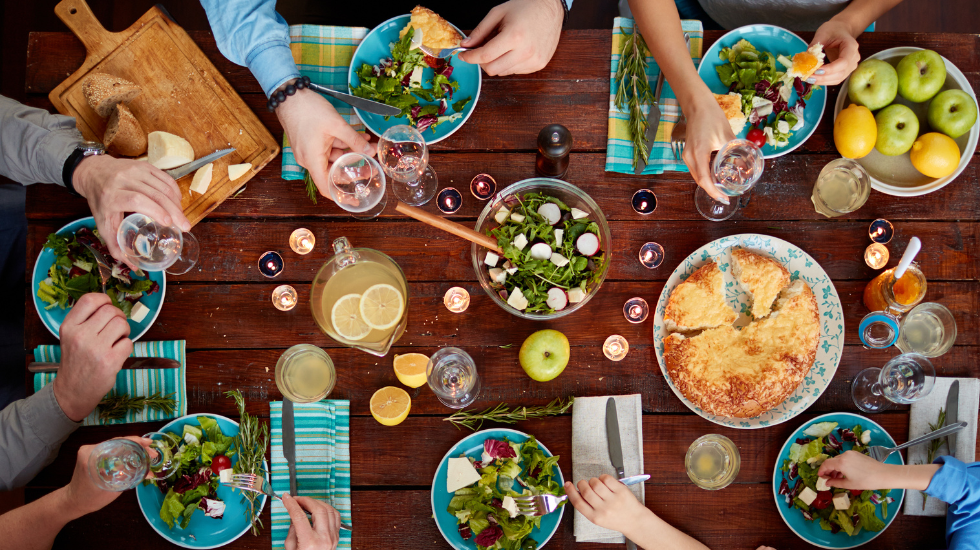
1. Fruit Eaten with Meals Can Leave You Bloated
Surprising, right?
Fruit is beautiful, full of hydration, enzymes, and life-force energy. But did you know that eating fruit on top of heavier meals can actually cause it to ferment in your gut?
This fermentation can lead to gas, bloating, and that uncomfortable “ugh” feeling we’re trying to avoid. That’s why I always recommend eating fruit on an empty stomach, ideally first thing in the morning or at least 30 minutes before your next meal.
2. Dried Fruit and Sorbitol Bloating
Raisins, apricots, prunes—these are nutritious, yes, but they’re also concentrated sources of fiber and sorbitol (a sugar alcohol your body may struggle to break down).
Sorbitol tends to ferment in your colon, which can lead to bloating and gas. I suggest enjoying dried fruits in moderation and really chewing them well to ease their digestive load.
3. Why Sugar-Free Foods Can Cause Serious Bloating
If you ever feel bloated after sugar-free gum, protein bars, or “low carb” snacks, this could be why.
Many sugar-free products are made with sugar alcohols like xylitol, erythritol, or mannitol- ingredients your body can’t easily digest. These sugar substitutes ferment in the gut, which can lead to trapped gas and bloating. I always say: skip the chemicals and nourish your sweet tooth with real, whole ingredients instead! Monk fruit sweetener is a great alternative!
4. Carbonated Beverages Can Introduce Air
Those fizzy drinks? They might taste refreshing, but they introduce excess air into your digestive tract, and that air has to go somewhere.
Even sparkling water can cause distention if your gut is sensitive. I prefer sipping warm water or my De-bloating Turmeric Lemonade Elixir to support digestion and avoid that bubbly bloat.
5. Dairy Products and the Lactose Bloat
This one is more common. If you feel bloated, gassy, or uncomfortable after enjoying milk, cheese, or yogurt, you’re definitely not imagining it.
Many of us lose the ability to digest lactose (the natural sugar in dairy) as we get older, which means even a little dairy can lead to digestive distress.
Lactose is a sugar found in milk and dairy products. And if your body doesn’t make enough lactase (the enzyme needed to digest lactose), that sugar ends up fermenting in your colon and causes that uncomfortable bloating!
Even if you’re not fully intolerant, dairy can still slow down digestion and cause inflammation, which is why I personally avoid it altogether!
6. Onions, Garlic, and Fermentable Fiber
I love these flavor boosters as much as anyone, but they contain something called fructans, a type of fermentable fiber that many people have trouble digesting.
If you find yourself bloated or gassy after meals with garlic or onions, try cooking them well to break down those fibers. Your gut will thank you.
7. Apples and Pears Can Cause Fructose Bloating
Did you know these beautiful fruits are high in both fiber and fructose? That combo can be too much for some digestive systems, especially when eaten with a full meal.
If you’re sensitive, enjoy them solo and chew very thoroughly. That gives your body the best shot at breaking them down before fermentation sets in.
8. Lentils and Beans Can Leave You Gassy
Beans and lentils are amazing sources of plant-based protein and minerals, but they’re also rich in oligosaccharides, which can ferment in your gut and cause gas.
To reduce their bloating effects, soak or sprout them, and cook them slowly with spices like cumin or fennel to support digestion. Small portions are also easier to handle if you’re still building up your digestive strength.
9. How Whole Grains Can Leave You Bloated
Whole grains like quinoa, brown rice, and oats are beautiful for energy and fiber, but if you increase your fiber too quickly, your digestive system might not be able to keep up.
Fiber requires plenty of water, enzymes, and strong gut motility to move through comfortably. If you’re feeling heavy or bloated after grains, try reducing portion size, chewing extra well, and gradually building up your fiber tolerance.
Related Reading: 10 Foods That Prevent Bloating and Support Digestion
Digestive Enzymes or Probiotics: Which One Helps More With Bloating?
This is one of the most common questions I get—and the truth is, both play a powerful role, but in very different ways.
Digestive Enzymes For Fast-Acting Bloat Relief
Digestive enzymes help break down your food in the moment. You take them right before eating, and they immediately go to work breaking down protein, fat, and carbohydrates into smaller particles your body can actually use.
If bloating hits you right after meals, especially when you eat something heavier or cooked, enzymes can make a noticeable difference within a few meals. I take them before every cooked meal, and I truly notice the difference in how I feel: less puffiness, less gas, more energy.
Probiotics Matter for Long-Term Bloat Relief
Probiotics, on the other hand, support the long-term balance of your gut microbiome. They don’t work directly on the food you eat, but instead help maintain a healthy environment in your digestive tract, supporting smoother digestion and less inflammation over time.
So, which one is better?
- If your bloating is meal-related or you’re eating cooked food most of the time (which destroys natural enzymes), digestive enzymes are your first line of defense.
- If you struggle with ongoing, persistent bloating, constipation, or irregularity—and want to support your gut health long-term, SBO probiotics can help rebalance your microbiome and calm inflammation.
For many of my clients (and for me), the combination of both is where the real magic happens. One offers immediate support, the other offers deeper healing!
Why I Recommend Feel Good Digestive Enzymes:
I couldn’t find a clean, effective enzyme formula that worked with a mostly plant-based lifestyle, so I created one!
My Feel Good Digestive Enzymes contain 2–3x more lipase than most formulas (crucial for breaking down beauty fats), plus protease and amylase to help digest protein and carbs.
They’re completely plant-based, free of fillers, and designed to actually work. Whether you’re bloated after a “clean” meal or a treat, they help your digestion flow with ease.
Why I Recommend Feel Good SBO Probiotics Daily:
Unlike many refrigerated probiotics that die off before they reach your gut, Feel Good SBO Probiotics are soil-based and shelf-stable—meaning they actually survive the journey and thrive in your digestive system.
I included a blend of potent, resilient strains that mimic the way our ancestors naturally consumed probiotics (from the soil and environment), supporting true gut diversity and resilience.
I take these daily, and I recommend them to nearly every client I work with!
Related Reading: Probiotics and Fiber: Why You Need Both for Better Health
Why You Don’t Have to Choose (and Shouldn’t!)
If you’re wondering whether to start with enzymes or probiotics, here’s the good news—you don’t have to pick just one.
In fact, using both together is often the most effective way to beat bloating and support vibrant gut health from every angle.
- Digestive Enzymes give your body immediate support at mealtime, helping you break down food efficiently and reducing that uncomfortable, post-meal puffiness.
- SBO Probiotics work deeper in your digestive tract, creating a more balanced, less inflamed gut environment over time, so bloating becomes less frequent in the first place.
Think of enzymes as your short-term relief, and probiotics as your long-term foundation.
That’s why I created the Gut Health Essentials Bundle, which combines both of these powerful formulas into one simple daily routine.
You’ll save 10% instantly when you get the bundle, or subscribe and save 20%, so you’re always stocked with your core gut-support tools.
Trust me, when your digestion flows better, everything improves! You’ll notice differences in your energy, your skin, and even your mood. And it all starts with giving your gut the daily love it needs!
Lifestyle Changes You Can Make to Combat Bloating
There’s far more you can do for your digestion beyond supplements and your diet!
Simple shifts to your daily habits can make a powerful difference in how your body processes food and eliminates waste.
1. Eat Clean and Avoid Processed Foods
Clean up your diet! Avoid processed foods and eat more “clean food” sans additives, artificial sweeteners, and toxic chemicals that can interfere with digestion.
2. Chew Your Food Properly for Better Digestion
Food that is well chewed is easier to digest than large chunks of food. It is important to take proper time to enjoy mealtime. Don’t rush through a meal, gobbling up the food. This sets you up for indigestion and bloat!
3. Drink More Water to Reduce Bloating Naturally
Water helps flush food and impurities through the digestive system. It’s best not to chug water with meals because that can wash nutrients out before they are utilized. Too much water with meals can dilute the digestive enzymes your body needs for the effective digestion of proteins, carbohydrates, and fats.
With meals, it’s best to sip on room temperature water or hot tea. It’s best to hydrate between meals – at least 30 minutes before and wait at least 45 minutes after eating to start drinking large amounts of liquids.
4. Exercise Regularly to Help Prevent Bloating
Jump-starting your physical activity can also give your digestive system a boost! Rigorous cardiovascular exercise, such as running or aerobics, activates the sweat glands that release fluids that the body could be retaining.
Even just a 15-20 minute stroll around the neighborhood after dinner can help with digestion. Additionally, a workout is a huge stress-reliever; exercise can ease day-to-day pressures and prevent stress-eating.
A 2006 study on bloating published in The American Journal of Gastroenterology found that physical activity helped participants move gas and ease their symptoms.
5. Follow Food Combining Rules to Avoid Gas and Bloating
Food combining is so important for proper digestion! Pairing the wrong foods together can be a recipe for discomfort and regret. The Beauty Detox Solution is an excellent resource for knowing which foods to eat together and which foods to avoid eating together. This handy “Cheat Sheet” can get you started on the right track.
6. Reduce Stress to Improve Your Digestion
Stress can have a very strong impact on your digestion, and therefore the level of bloating you experience. Look at this quote from Harvard’s Health Site [13]:
Multiple factors — biological, psychological, and social — contribute to the development of a functional gastrointestinal disorder. Numerous studies have suggested that stress may be particularly important, however. The relationship between environmental or psychological stress and gastrointestinal distress is complex and bidirectional: stress can trigger and worsen gastrointestinal pain and other symptoms, and vice versa. This is why psychological therapies are often used in combination with other treatments — or even on their own — to treat functional gastrointestinal disorders.
Eating in a state of fear or distress can result in the stomach feeling unsettled or upset. This can lead to indigestion and bloat.
A Bloat-Free Belly Starts with Balance
Bloating isn’t always about “bad” food choices, it’s often about how your body is processing them. By tuning in, making small changes, and supporting your digestion with the right tools, you can feel lighter, more energized, and more in sync with your body every day!
With love,

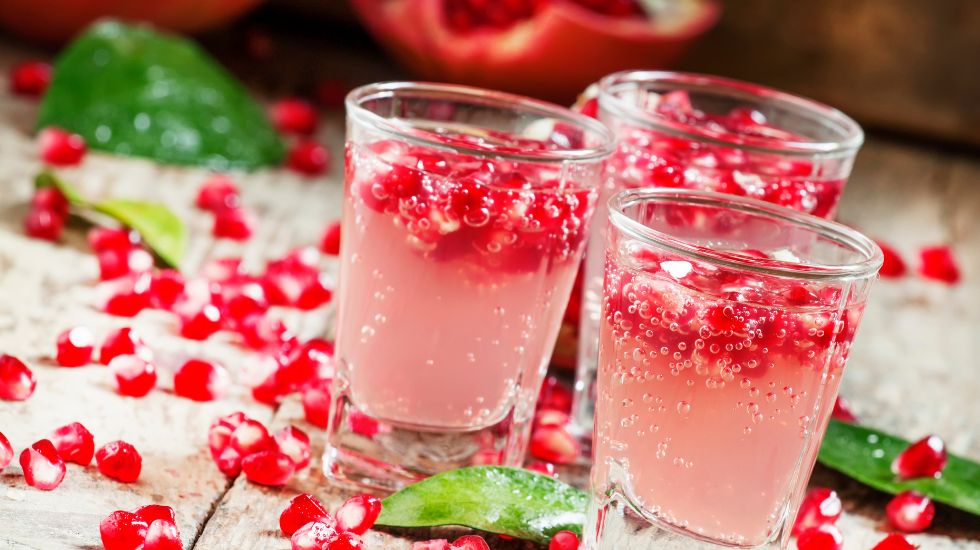
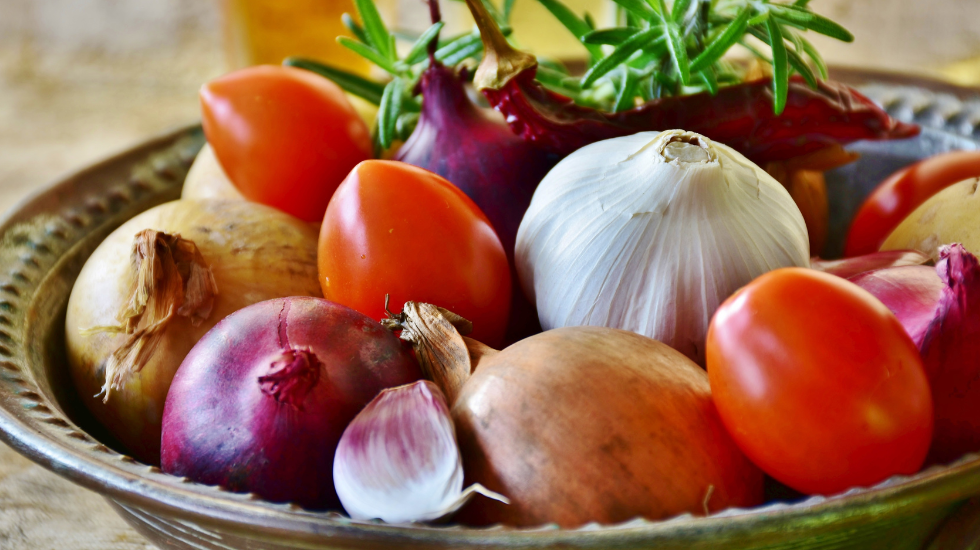
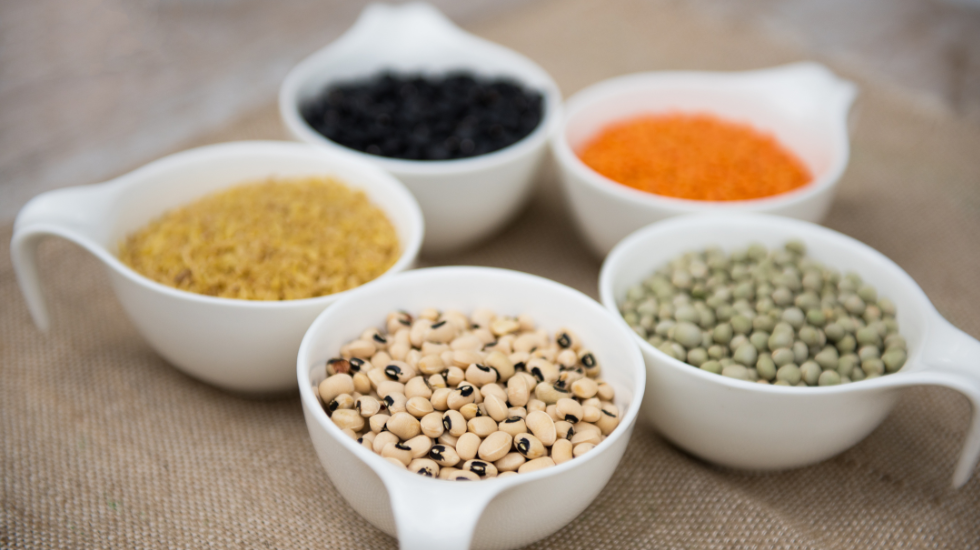
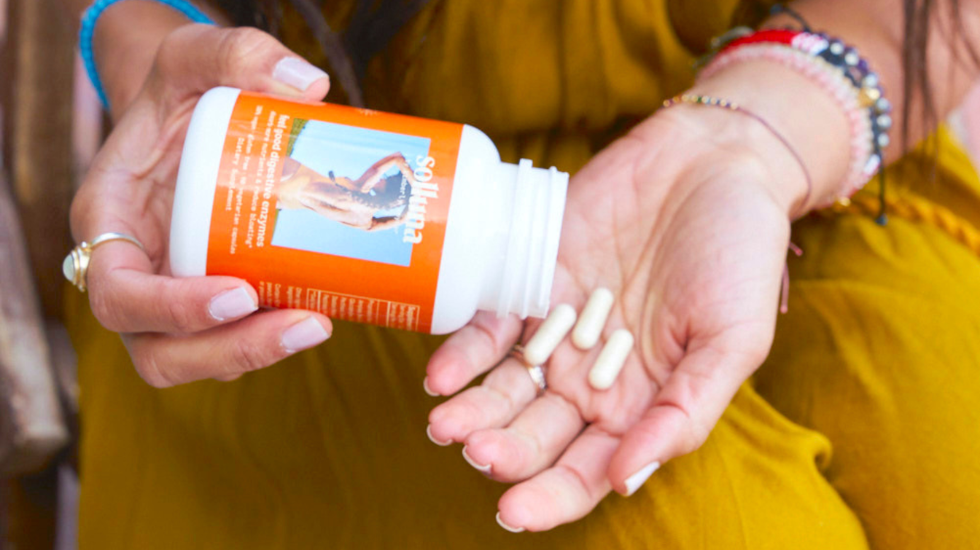
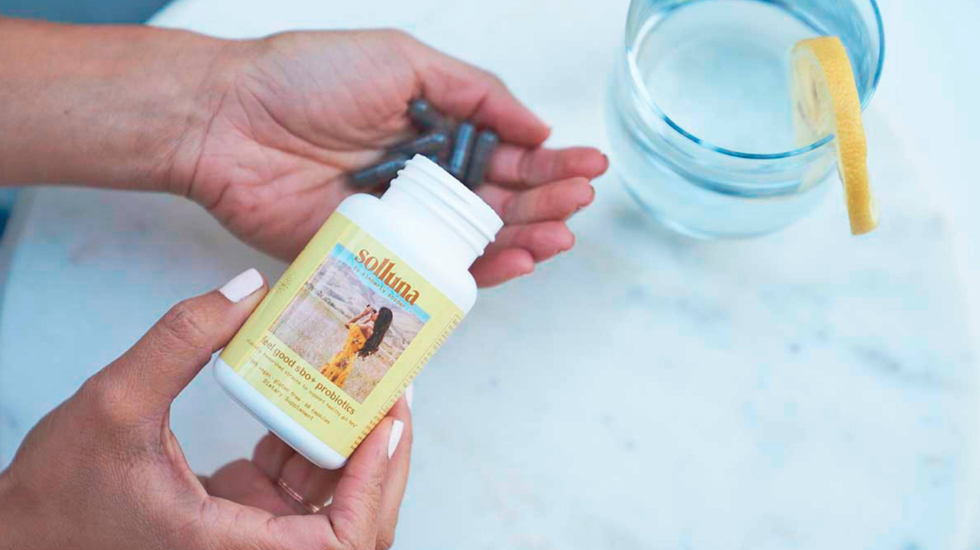
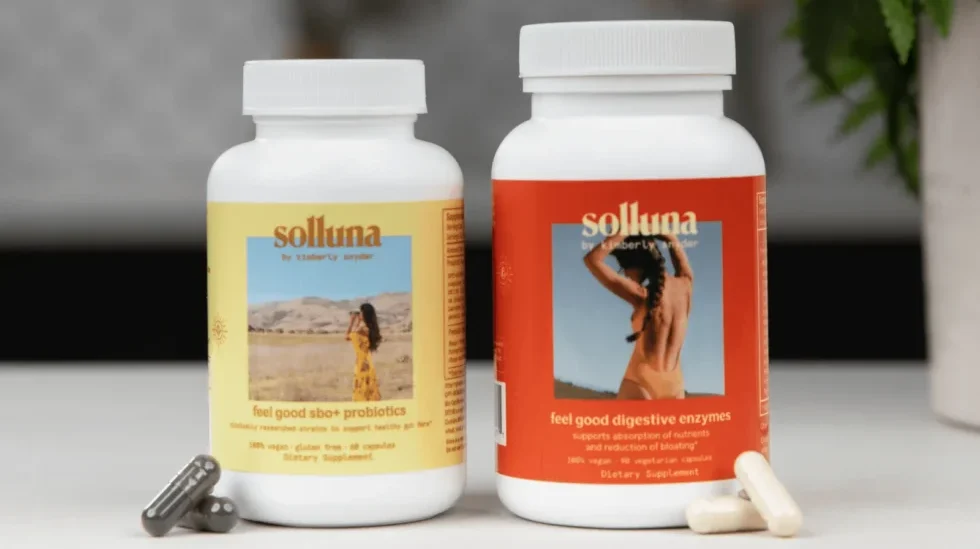

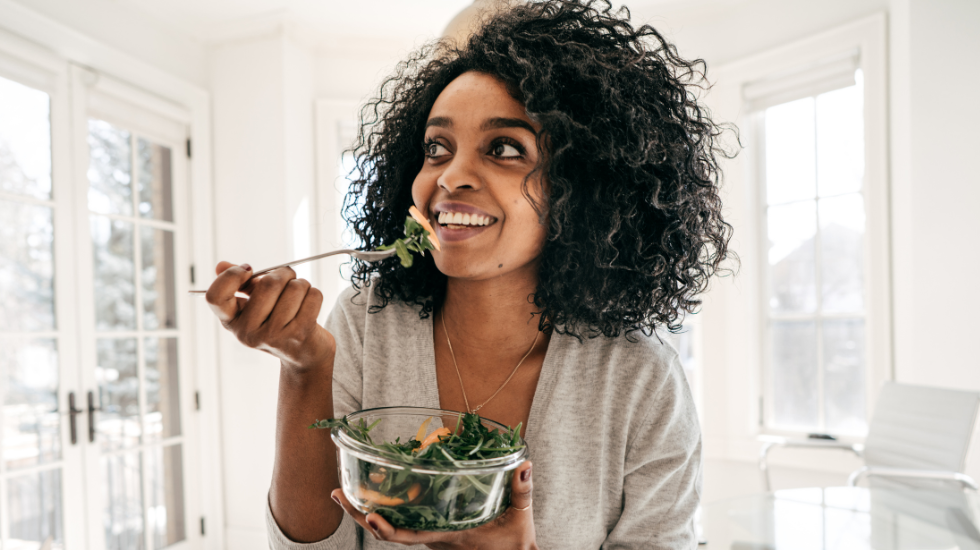



0 Comments